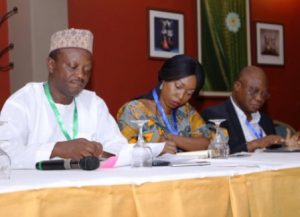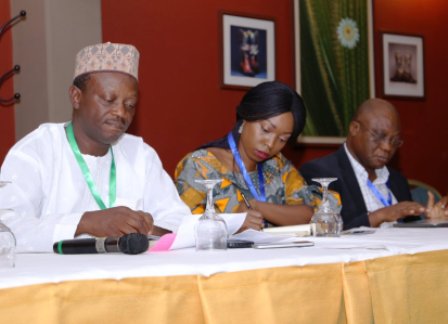Media experts, others identify what Nigeria should do to boost family planning

ABUJA – Leading health journalists, government functionaries, non-governmental organizations and other intellectuals have expressed hope that Nigeria would succeed in its efforts on family planning if some measures are taken to boost its current campaigns.
At a sideline event at the ongoing 5th National Family Conference in Abuja, organized by Development Research and Project Centre, panelists highlighted the commitments, successes and challenges of governments of 36 states of the country and the federal government, support of partners, roles of religious and community leaders and the general public in driving family planning messages.
One of the panelists who spoke for the media, the publisher and editor, Nigeria Health Online, Mr. Sam Eferaro, said the media have a very big role because family planning is about life. “So, if the media’s role is to promote life, talk about life, report life, it means therefore that it has a role to play in everything about family planning.
“To a large extent, the media is playing the role it is supposed to play because we even have journalists forming association in reproductive health, which means they are interested, and they’ve been writing.
“The question again is: Is what they are doing enough? I will say no because the media is handicapped. One: you find that the average reporter has to train himself to be able to report family planning effectively. It is not like it used to be in those days…”
Mr Eferaro, who has covered the health in his entire career, said family planning is one of the key areas a health journalist has to cover.
“In doing so, he needs activities, events to be able to report these issues daily. When you talk about family planning, the event that you report these days are limited to what the NGOs are doing. Thank God for them. We talk about national policy, but nothing much on the side of government.
“So, you really don’t have frequent events that could make the journalist to be very busy. Again, the journalist has found himself static. Over 20 years ago, some journalists were asked to develop a media kit on population and family planning. That media kit contained all the information and whatever they need to know. it also has some areas they can look into.
“Up till now, I don’t think many media had access at that time to the population kit. And, 20 years after, there has been no review. The journalist has to depend solely on his knowledge and the few things that are coming from the NGO.”
He said the journalist should develop a new way for reporting family planning to help the nation attain desired progress.
Permanent Secretary, Kano State Ministry of Health, Usman Muhammed, said the uptake has been very high and the state government had made efforts to disabuse the minds of its people over any myths that could make them reject family planning.
He noted that one of the strategies adopted by his state is utilization of traditional birth attendants that have been known for ages to be midwives.
“These are now being used to generate demand for commodities in the state. Generally, there has be more innovations into this area which of often neglected. This is because the health of women is largely on the family planning in trying to space, in trying to give women the safety required for safe delivery. I will advocate for concerted approach that all hands must be on deck in trying to conscientize women and their men counterparts to accept the reality of family planning in the country,” he urged.
Also, Director of Research, National Institute of Policy and Strategic Studies, NIPSS, Kuru, Jos. Prof Habu Galadima, said the population of family planning users in the country remains very low.
“Given the population explosion that is taking place in Nigeria, if we don’t do something about the size of our family, definitely, Nigeria is going to run into serious problem. It is important that we take this issue seriously and begin to address it.
“That is the essence is to win more champions, get more people involved in the discussion on family planning,” he said.
He called for increased partnership among stakeholders to make the nation’s family planning goals succeed.
Commissioner for Health, Niger State, Dr Mustapha Jibril, who was represented by Dr Yahaya Nahuso, said technology makes family planning and other health issues more acceptable.
“Niger state has exploding fertility rate, we are producing them as quickly as we can, which is a big issue. Initially, we had poor CPRS, it is improving now simply because of the inputs that we are getting from partners, who put commodities and equipment. But, we know it is not enough to make a huge impact. Right now, we are promoting community ownership and we are promoting health promotion.”
He said the state government was also working to ensure accountability.
Among other speakers at the event are Azeezat Olaoluwa, health desk, TVC News; Rubby Rabiu, Daily Trust newspaper; Hajiya Rabi Abdallah, Manager Health, Nigeria Television Authority; Dr Joe Akabuike, Commissioner for Health, Anambra State and Sarkin Yakin Gagi Sokoto, Umar Jabbi.

